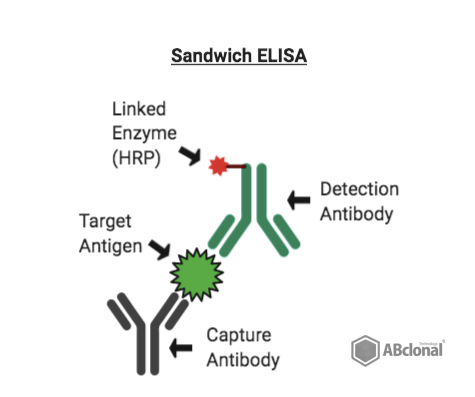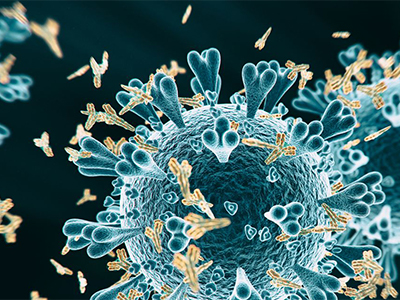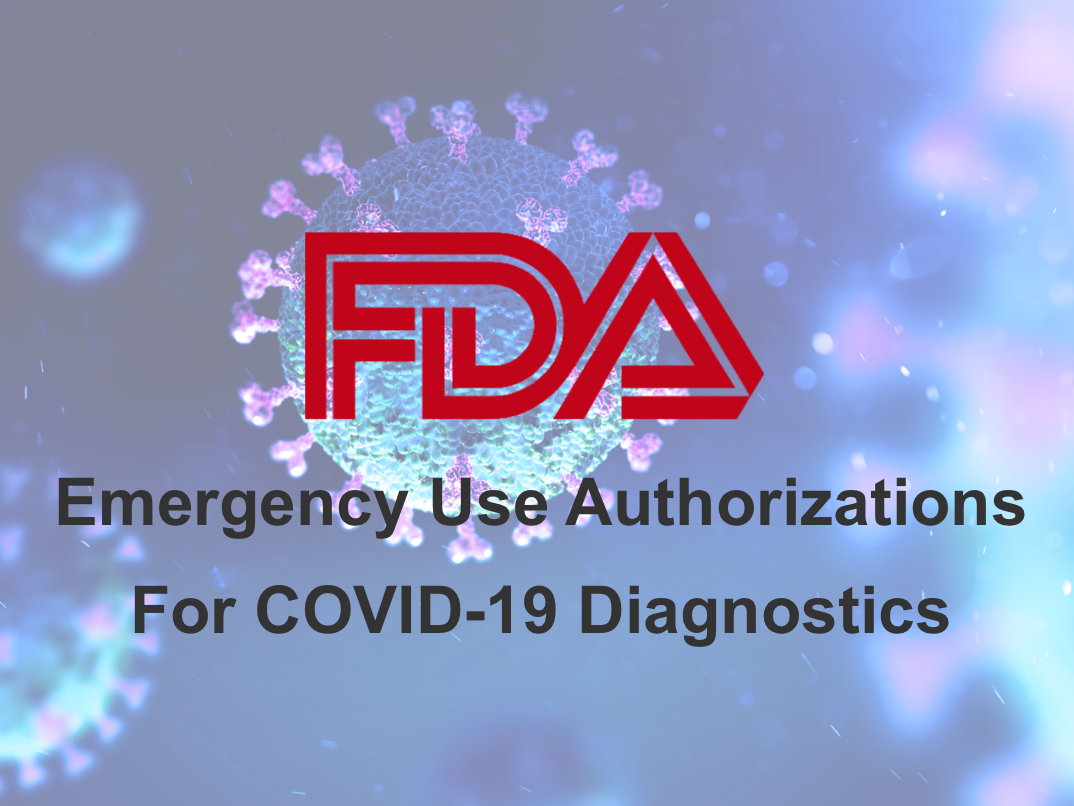Over these past few months, we here at ABclonal have been working diligently to continue supplying necessary reagents to researchers, clinicians, and companies worldwide to facilitate their efforts during the COVID-19 pandemic. In direct support of that goal, we’re proud to introduce our new, comprehensive line of SARS-CoV-2 ELISA kits.
An Introduction to Sandwich ELISAs
Our ELISA kits target the most hotly researched proteins on the SARS-CoV-2 virus, from the spike (s1) and its receptor binding domain (RBD) to the nucleocapsid (N) proteins and their corresponding antibodies. Please see a full list of our SARS-CoV-2 products.
All of our SARS-CoV-2 ELISA kits utilize the sandwich detection method, which offers a few advantages over the other types of ELISAs (including traditional direct and indirect ELISAs). Before we get into a comparison between the different methods, let’s go over a few of the basics; sandwich ELISAs utilize matched antibody pairs (capture and detection antibodies, respectively) that create an antibody "sandwich"—with the detection antibody bound to the antigen, and the capture antibody bound below that.
Figure 1 below illustrates the mechanism and structure of the sandwich ELISA assay. As you can see, the target antigen in green is “sandwiched” between the capture antibody and the HRP-conjugated detection antibody.

Figure 1. Diagram of the sandwich ELISA mechanism
In conjunction with a series of wash steps to remove non-specific, unbound antigens and antibodies, the serum sample is added and the both the capture and detection antibodies bind specifically to the target protein on the antigen. Both of the antibodies within the pair are bound to two different epitopes on the antigen. This distinction is particularly important. As opposed to traditional direct ELISAs, the sandwich method uses two antibodies to detect the antigen which allows for a more robust, higher sensitivity assay given the fact that it depends on the binding specificities of two antibodies (capture and detection). This sensitivity is actually 2-5 times more sensitive than that of traditional direct or indirect ELISAs. The final step of the sandwich ELISA procedure is to perform color development. This is done using a substrate specific to the enzyme linked to the detection antibody, which in the case of our kits is TMB that combines with the horseradish peroxidase (HRP), subsequently causing the oxidation of TMB and forming a blue color. The absorbance of this color is then measured and used to determine the presence and quantity of the target antigen.
Advantages of Utilizing a Sandwich ELISA Kit for SARS-CoV-2
As previously mentioned, there are a multitude of advantages to using a sandwich ELISA kit over traditional direct and indirect ELISA methods. In addition to the heightened specificity and sensitivity, the sandwich method also allows for greater flexibility as different detection methods can be used with the same capture antibody—both direct and indirect. We've taken the extra step with our SARS-CoV-2 ELISA kits and pre-optimized both its capture and detection antibodies in order mitigate the possibility for cross-reactivity. In addition, sandwich ELISA kits are particularly suited to SARS-CoV-2 research as they are able to analyze complex samples without the need for the antigen sample to be purified beforehand as necessary with other methods. It is still able to deliver high sensitivity and high specificity, and with increased efficiency as it cuts out the additional sample purification step. The advantages of the sandwich ELISA method are summarized in Table 1 below:
| Table 1. Sandwich ELISA Advantages |
|
High Sensitivity:
|
|
High Specificity:
|
|
Flexibility:
|
Learn more about our full line of comprehensive SARS-CoV-2 ELISA kits here. If you have questions regarding our SARS-CoV-2 ELISA kits or any of our other research reagents and antibody products, reach out to our expert support team using the button below.




